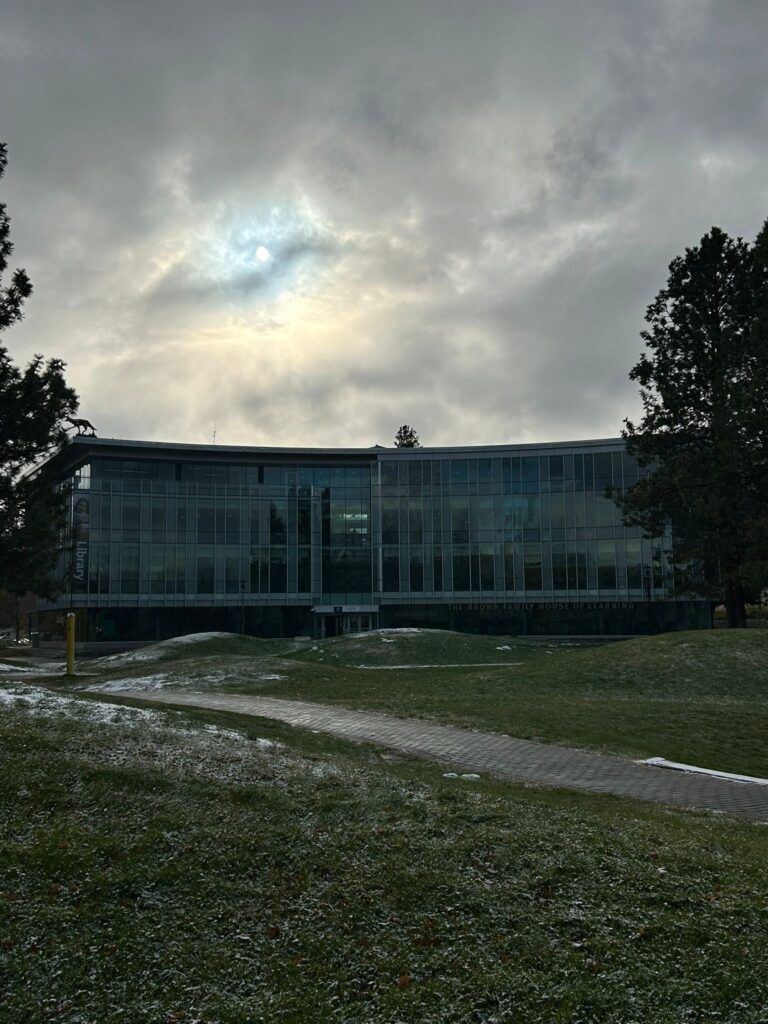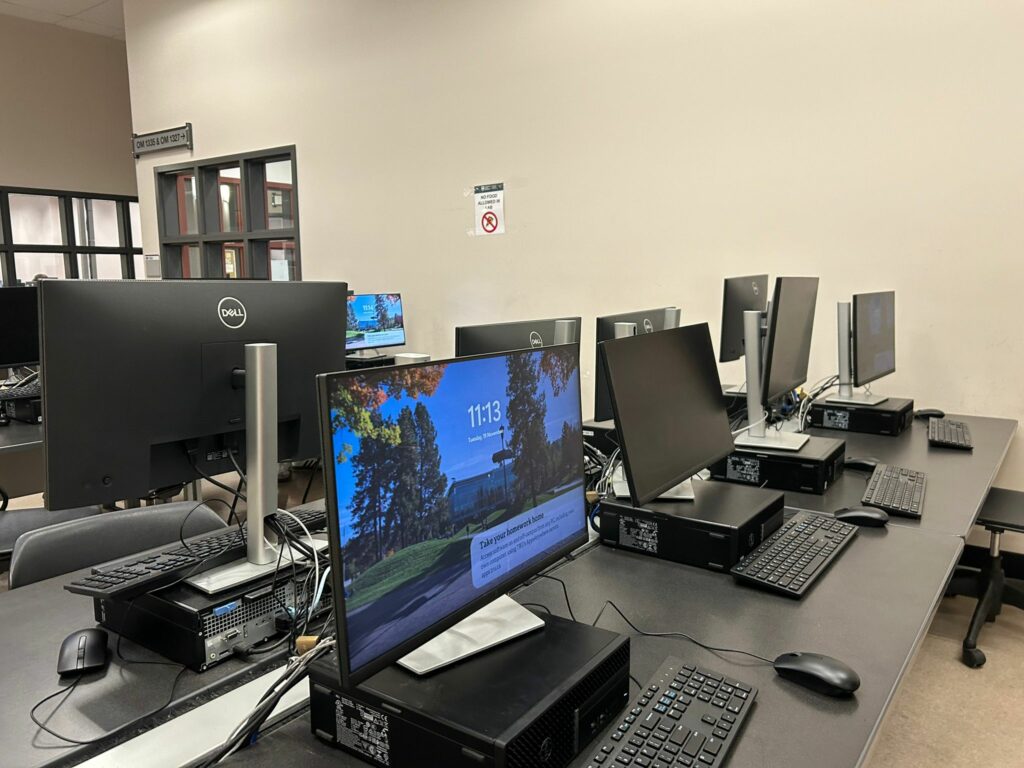How Will TRU Balance This Ever-Evolving Technology?

The Senate Meeting at Thompson Rivers University (TRU) on Monday, November 25th, will decide the guidelines the school will follow in terms of AI use for coursework as the increasing role of AI in education becomes a more pressing topic within the education system. These guidelines will decide how AI use in assignments will be monitored within the university as many students have been using this tool for assignments and various course related work. Proper boundaries are needed if the university is going to continue to allow this technology as a tool for student’s education. If the determined guidelines pass, the changes will be implemented next May.
The Senate meeting will be open to the public and held in the Brown Family House of Learning from 3:30-5:30pm.
For some, AI has been determined to help foster the skills students need to navigate and shape the future as technology is becoming a more integrated part of our world, not only in our day-to-day activities, but within the education system as well. Many schools are already integrating the use of AI in their classrooms, with the hope that it will provide learning outcomes that fosters agency, awareness, critical-thinking, problem-solving skills, connectedness, and well-being. While there is hope to what AI can bring to student’s education, there are many concerns as well. As we are shifting into a world that relies so heavily on technology, for some, there is a concern that encouraging more use of it will only impede learning outcomes. There is a risk when integrating AI in education of inequalities and lack of access. There also becomes a risk of loss of customization, creativity, originality, human connection, and of an overdependence on AI on our learning abilities.
AI use in the education system has already begun to be integrated as students use the tools AI provides when completing assignments. Some examples of how AI helps with assignments are that it can generate ideas, narrow the scope of a topic, find connections among ideas, as well as creating drafts, headlines, transitions, and even feedback on written work. AI needs to be cited properly when used in assignments, and this is where the problems occur. AI is programmed to generate answers whether it provides the right answers or not, which is why citing AI prompts and sources have started to become a topic of interest and urgency within classrooms.

While both the positives and negatives of implementing AI use circulate the education system, some students here at TRU had comments of their own to add to this debate as these guidelines that might be implemented here at TRU will ultimately affect the way students’ education is received and how assignments may look in the future.
Isaac Augustine, a fourth-year student shares his thoughts of how AI use in education will become more regulated in the future and how that might affect learning, he commented that he does think AI use restricts creative thoughts, he also adds, “I do think regulating AI will become more difficult in the future, just because of how advanced AI is, which is the reason why I think it should not be within the educational institutions as a tool in the first place.”
Fourth-year student Malmi Ranasinghe, comments that she feels that “AI use in education will become stricter and more regulated in the future, because I think [educators] will want to maintain academic integrity while promoting equal learning opportunities for students.” She does however feel that AI use is beneficial for students because it helps to clarify complex topics, generate ideas, and offer different perspectives on topics that students may not have considered. Malmi also adds that, “AI use is beneficial for receiving instant feedback on our assignments and helps to clarify that we correctly inputted sources.”
When it comes to AI use in schoolwork, Isaac had this to say about a past experience using this technology, “AI helped me with research for my research essay, it made my research very easy, however, it also made me overlook a lot of sources that I would have found on my own if I had not used AI. It also made my research essay very one dimensional. I have noticed quite a few times that AI can misinterpret questions and that the current version we have available to us, such as Chat GPT, is not always correct.”
Malmi, having a different experience with AI, commented that she frequently uses AI for her assignments, and she has found it to be incredibly helpful, for example, she says, “Recently, I worked on a math project where AI clarified the steps of various math problems and offered alternative methods for solving them. I found it extremely useful.”
When asked what measures, if any, that TRU should take to balance AI’s advantages with academic integrity, Isaac commented how it will be difficult to balance AI and ensure academic integrity at the same time. However, he does think that “[TRU] should charter their own AI to allow for certain things like research because I do think it can help speed up the process of researching for papers and other similar assignments. I also think TRU should significantly increase their expenditure on AI detection technologies to be able to know when students have used AI in projects, quizzes, and assignments. [This] will allow for TRU to ensure academic integrity stays at its highest level.”
Malmi offered three solutions for TRU to balance AI and academic integrity, she believes, “The university could organize workshops or sessions to educate students on the ethical use of AI, helping them to understand that AI is a supplementary tool, not a shortcut for assignments or academic work. Additionally, students should be encouraged to cite AI in their references to promote transparency. [Lastly], training instructors with various resources to recognize AI usage and address its excessive application, if necessary, would also be beneficial.”
The debate on ethically using and integrating AI technology into the educational system continues as many students are curious of the guideline outcome from this Senate meeting on Monday, where it will be determined how the use of AI will be enforced here at TRU and what that may look for like for future and current students.
Sources
aqua. (2023, December 3). AI’s Negative Impact on Education – How Artificial Intelligence is Hurting Learning. AI News. https://aquariusai.ca/blog/ais-negative-impact-on-education-how-artificial-intelligence-is-hurting-learning
Kopp, W., & Thomsen, B. S. (2023, May). How AI can transform education for students and teachers. World Economic Forum. https://www.weforum.org/stories/2023/05/ai-accelerate-students-holistic-development-teaching-fulfilling/
The University of Kansas. (2024, July). Ethical use of AI in writing assignments. Cte.ku.edu. https://cte.ku.edu/ethical-use-ai-writing-assignments